LUPE FIASCO’S NISHIGAWA IAIDO CLUB
Maharishi and Lupe Fiasco re-unite to launch a training and post-training collection celebrating the launch of the Nishigawa Iaido Club, founded by Lupe in Chicago.
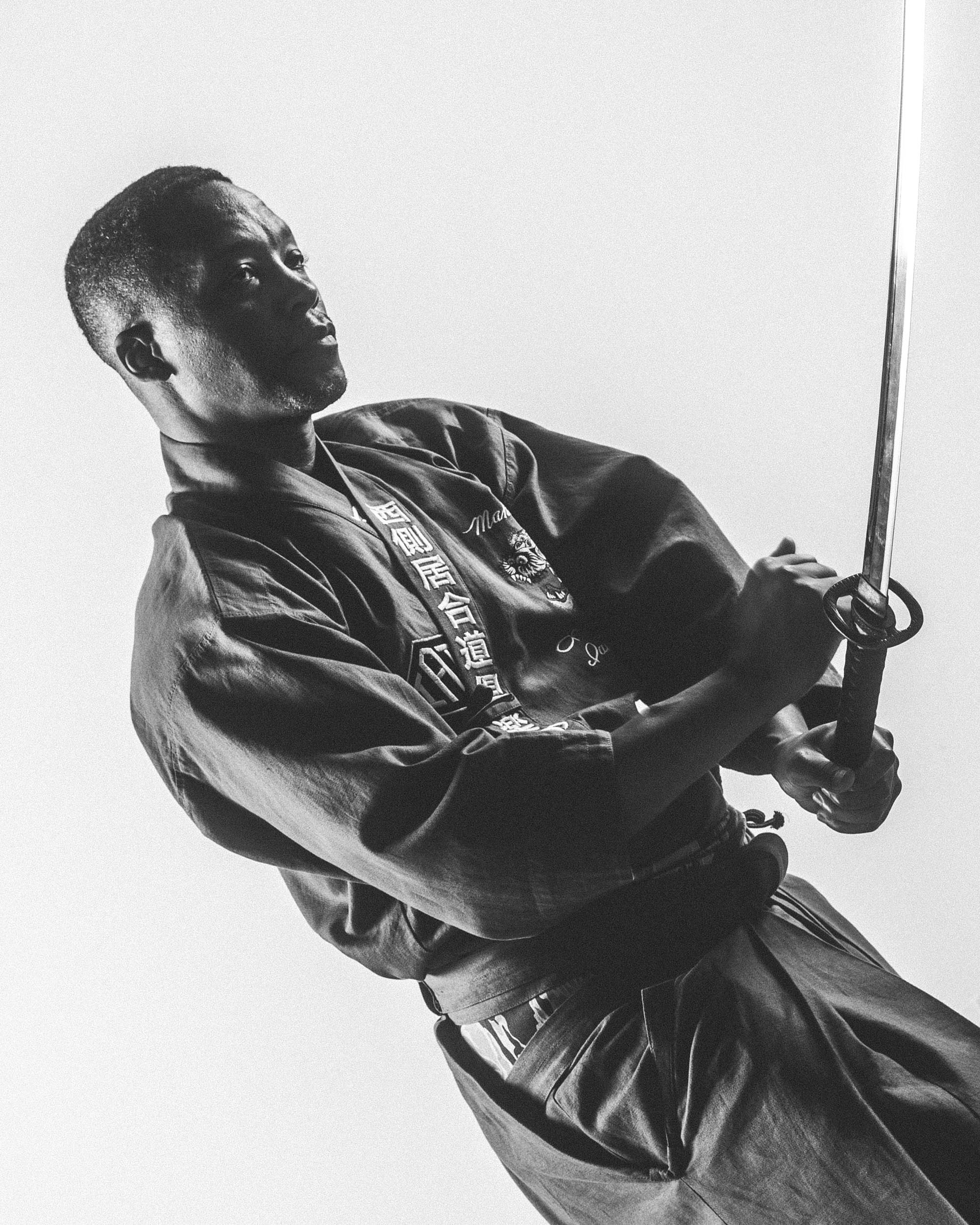

Iaido, roughly translating as “the way of mental harmony and immediate reaction”, is the meditative martial art of the traditional Japanese sword, the Iaito.
To champion Iaido’s rich history whilst aligning with Lupe’s conscious efforts to propagate social change, Maharishi has created a commemorative jacket, training and post-training wear. Hand-machine embroidery runs across the collection, which is crafted from staple Maharishi fabrics including cotton-hemp twill, organic cotton and recycled polyester.
The collection is available Friday 8th November online and in the London store, and in the New York store from Monday 11th November.
Tell us a bit about Nishigawa Iaidō Club.
Lupe Fiasco: So, Nishigawa Iaidō Club, is the expression of my childhood experiences with swordsmen. Japanese swordsmen who just so happened to all be black men, on the south and west sides of Chicago.
So, Nishigawa actually is Japanese for west side.
And it's most used in sumo wrestling. You know, the east side and the west side. The Nishigawa and Higashigawa. The Nishigawa is considered to be the less prestigious side that the wrestlers enter in from. So it's all based on how two sumo wrestlers enter into the ring to fight. So, the prestigious fighters come in from the east side, and the less prestigious fighters come in from the west side.
I was born on the west side of Chicago.
All of my first memories are around the martial arts. And specifically Iaidō and the samurai sword. Practicing and using the samurai sword. My dad was a samurai swordsman. He practiced Iaidō. He had a team of students that practiced Iaidō. I got my first katana, a Wakizashi, a short samurai sword when I was about three years old, maybe four, three years old.
And so it's just been with me all the way through my entire life, it’s something I’ve practiced all the way up until this day, wherever I am, there's a katana, to either practice or use in some capacity. So, yeah, that's the Nishigawa Iaidō club, it's kind of an extension of my childhood roots, my relationship to Iaidō and using that as a way to kind of have a community of swordsmen, of my ilk, of my generation. As an opportunity to come together and express our love for the samurai sword.
"All of my first memories are around the martial arts. And specifically Iaidō and the samurai sword."
Can you tell me about the visual inspiration behind the club?
Lupe Fiasco: Yeah. So like, growing up into martial arts, not only is it the actual practice itself, it's all of the other things that spin off of it. So it's the cartoons and the cultural references. ‘Oh, there's a picture of that famous singer holding a sword.’ You know? And pulling that into the milieu in certain ways.
So for me, it's always been about collecting, archiving, experiencing and working through those different visuals and different reference points. From poems by Jack Kerouac, where he mentions katanas and samurai swords. All the way up to anime like Ninja Scroll. We have the main protagonist, his weapon of choice which is the samurai sword. And it's interesting, because we would be at home watching these animes, or watching these cartoons, or watching these films, and then we would literally be able to go into our living room, get the exact weapons and clothes that they had, put it on, and go outside and actually reenact some of those things.
It's just giving a heads up, and a nod to all of the different facets where Iaidō and practice with the katana kind of come into play. I'm always interested in where those cross-cultural collaborations kind of occur. And then, wanting to kind of pull out the jewels and the gems, for life and understanding the meaning that comes out of those spaces too. So, it’s about having fun, but it's also about being serious, and extending that cultural practice across barriers and boundaries.
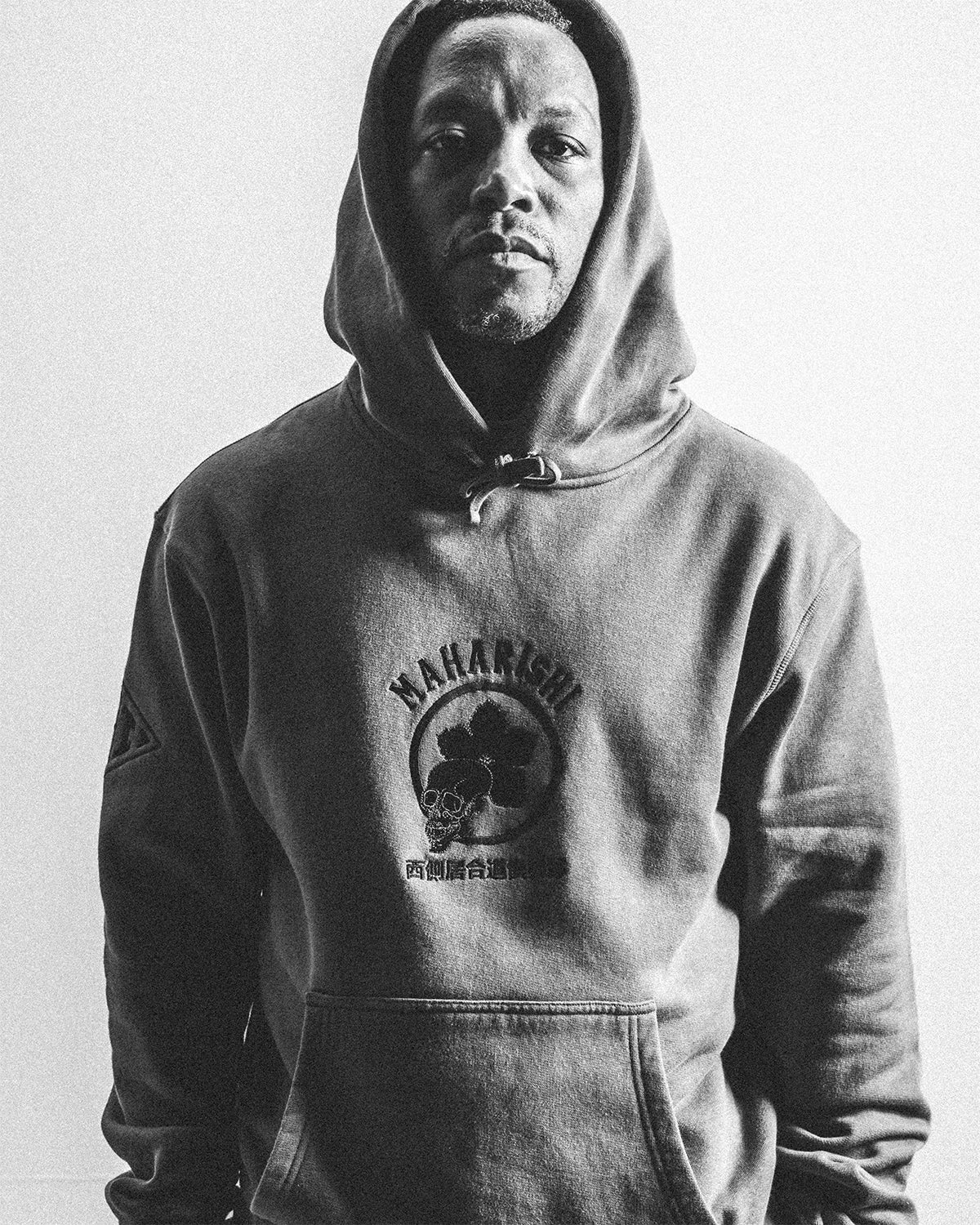

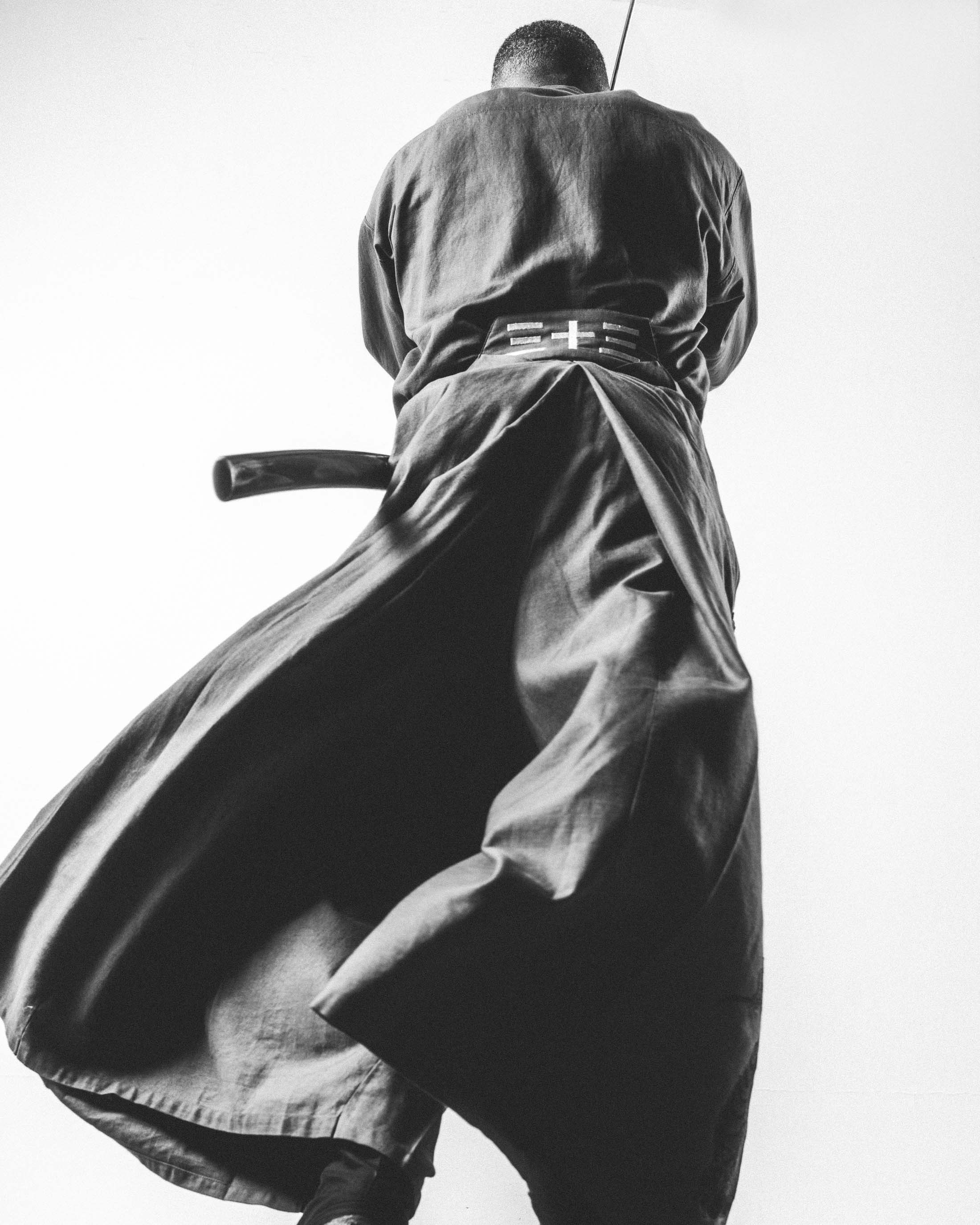

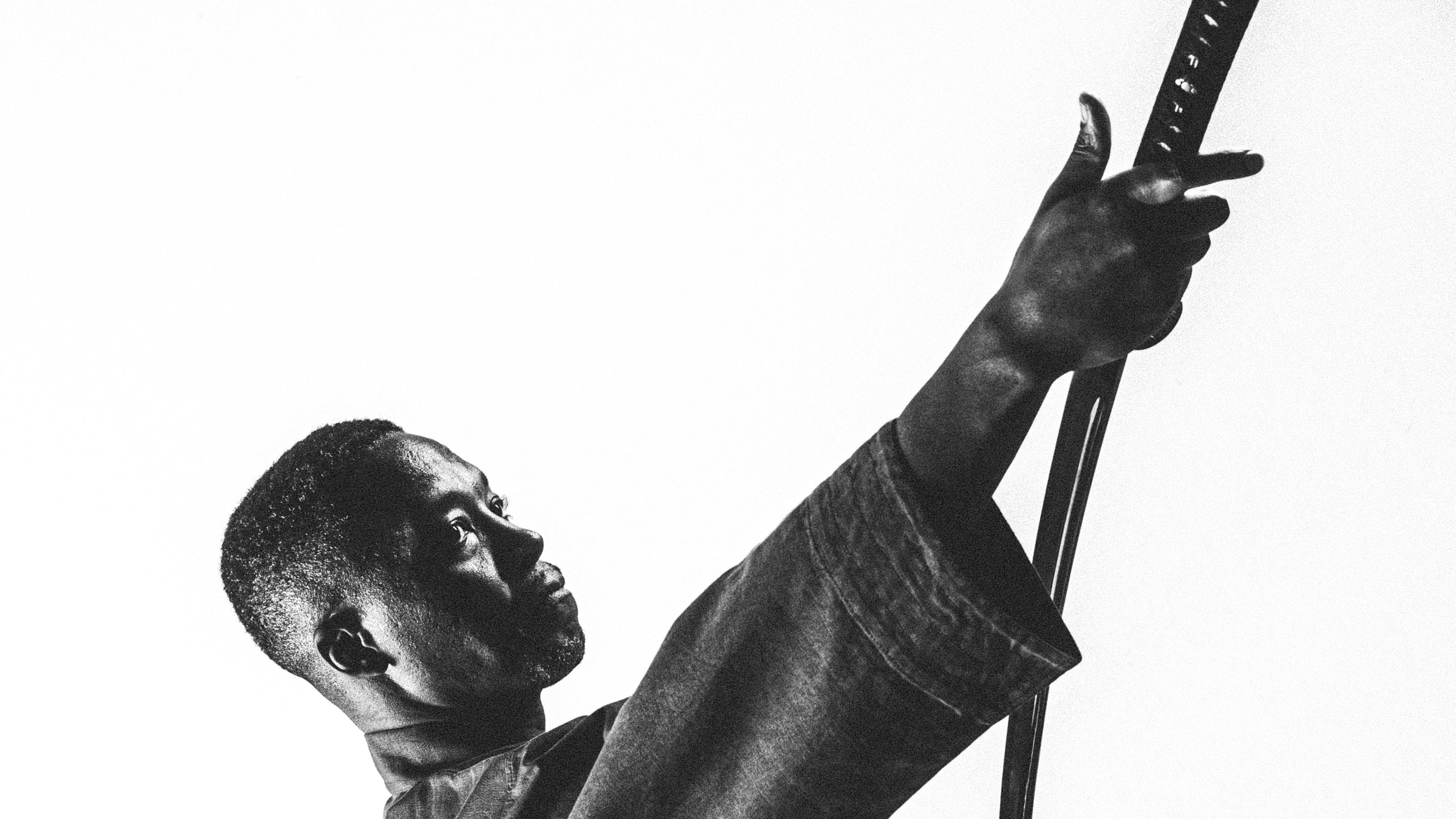

By being surrounded by these references from early on, is that what contributed to you gravitating towards Maharishi?
Lupe Fiasco: Oh yeah. So Maharishi is like the perfect mix of my entire life. My dad was in the military and into martial arts. Those two things by themselves are enough. That's Maharishi. And like, it's the military and the martial arts jammed together in these very interesting ways. So since the first scent that I got of Maharishi, DPMHI… I don't know how many years ago, It was an immediate like. ‘Oh, yeah, I know that.’
My dad used to own army surplus stores, so wearing, upcycled military gear or deadstock military gear, to school, like, that is what we're wearing to school, for the week. Or these bomber jackets, fatigue outfits, decommissioned naval what have yous.
But in terms of just like, the mission behind it, the drive behind it, all the interesting things that Hardy's a part of, and the crew, is something that spoke to me since I first heard about it.
And one of my first stops, as soon as I got to London, was straight to DPMHI and straight to the Maharishi store. And it actually was too much. It was like it was too consuming, you know? It was like, ‘oh my god!’. As you all know, from the early days, you had samurai armor in there, and you had these references to martial arts culture and Japanese culture.
So, you know, it's the perfect collaboration.
"And that's what Iai means, to be always ready. To be constantly prepared, whatever the circumstance is, to be prepared to win, to be prepared to lose."
What would you say practicing martial arts and Iaidō bring to your life?
Lupe Fiasco: When I participate in something or practice something, I always try to make a brand out of it. I just look at the reference points that are in it, and I always try to pack it with meaning, or unpack it, or position it in a certain space. Literally all of the logos and the designs that are in Nishigawa Iaidō Club...
It's like, Iai-dō. Dō means ‘The way’.
Iai kind of gets translated as, always ready, to be in a constant state of preparedness. And so as kids, we always used to say, ‘Always ready, sensei.’ Whenever my dad would say, ‘Are you ready?’
‘Always ready, sensei.’
You know? So that's a mantra in my life that's just been around forever. And that's what Iai means, to be always ready. To be constantly prepared, whatever the circumstance is, to be prepared to win, to be prepared to lose.
There's another symbol in the storyboard that is Nishigawa, which is San-juu-san, it’s 33, in Japanese. That comes from the chances that you had in a sword match, in a duel. So there was only a 33% chance that you would win, and there was a 66% chance that you and the other person would kill each other. That would be a mutual killing. You think, ‘Oh, it’s 50/50, it’s…’ no, it's 33. That's the chance of you living.
So I just look at that as motivation, at any given moment, there's the opportunity where you could lose your life. So make sure that you live life to the fullest.
Then there’s that part about Nishigawa, the least prestigious side of the sumo ring. But there's still champions that come out of that side. There's still folks who come out as some of the best wrestlers in the world, in the history of sumo, fight out of the west side. Hoping to get to the east side. I always look at that as being the challenge. So just in that alone, is enough for me to kind of live, what I would consider to be a complete life. Knowing that at any given time it can be taken, so you got to live it to the fullest.
And that always be ready, that Iai spirit.
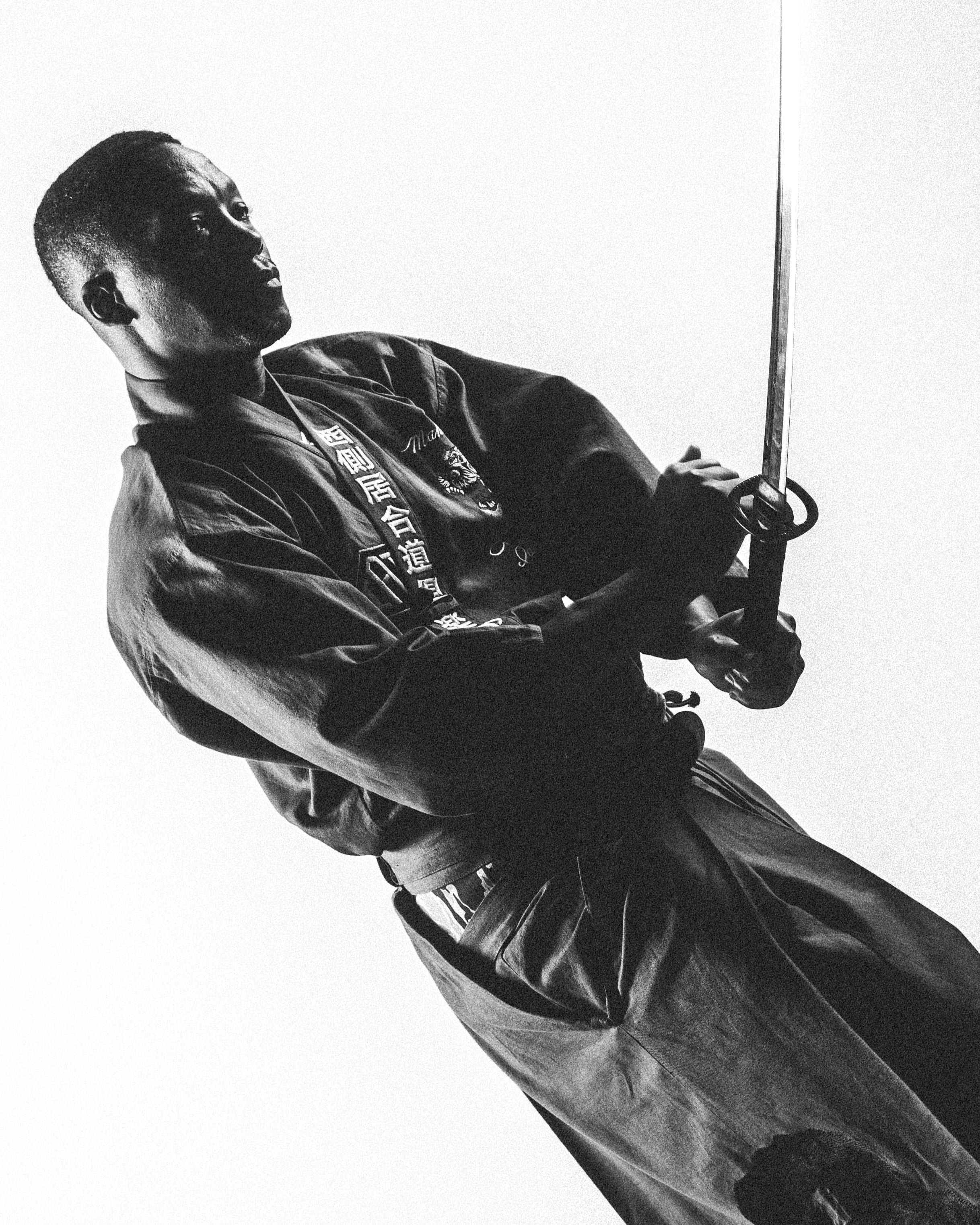

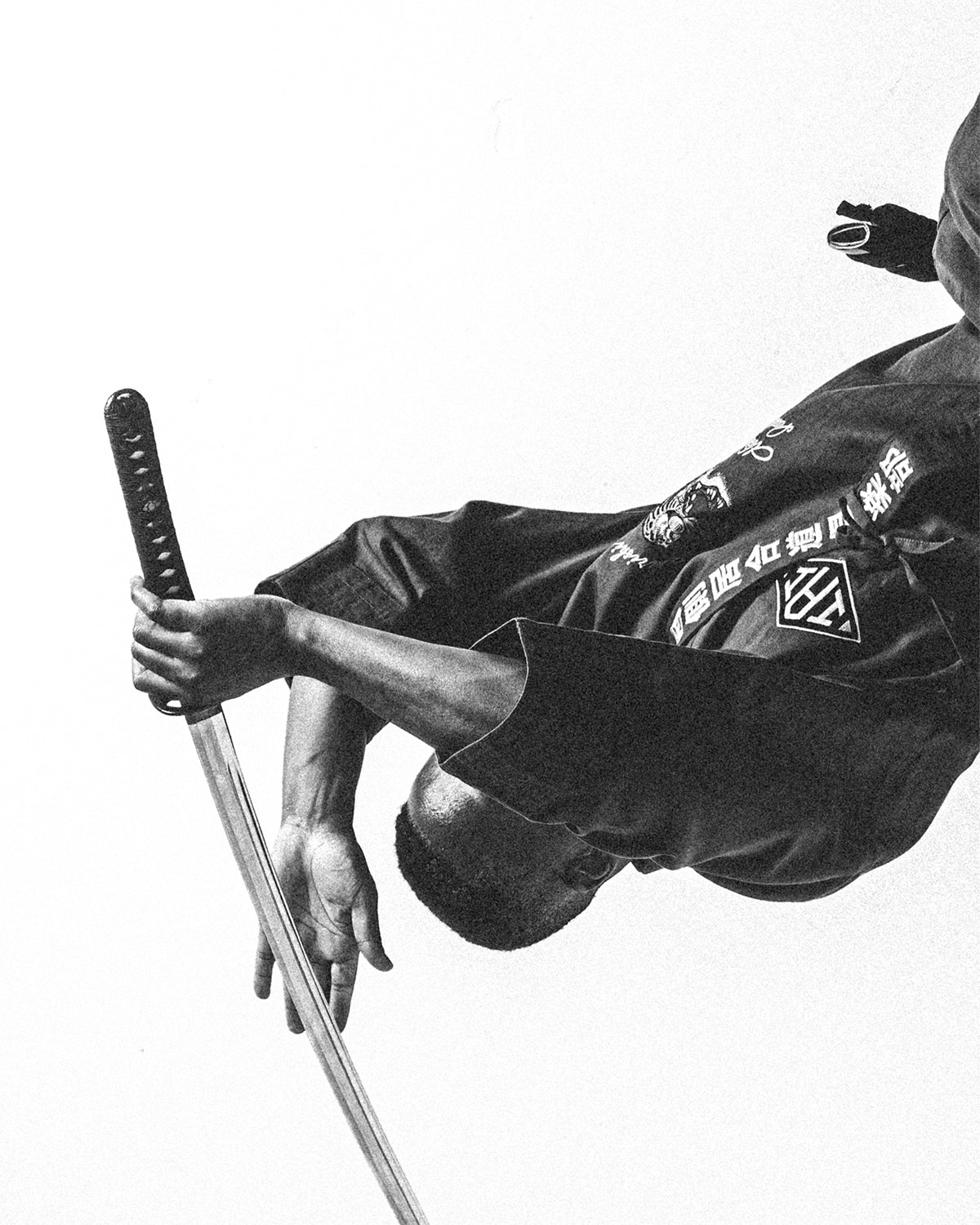

The collection is available Friday 8th November online and in the London store, and in the New York store from Monday 11th November.
Maharishi London
2-3 Great Pulteney St, London, W1F 9LY. +44 (0)207 287 0388
Maharishi New York
38 Lispenard St, New York, 10013. +1 (917) 265 8068













































